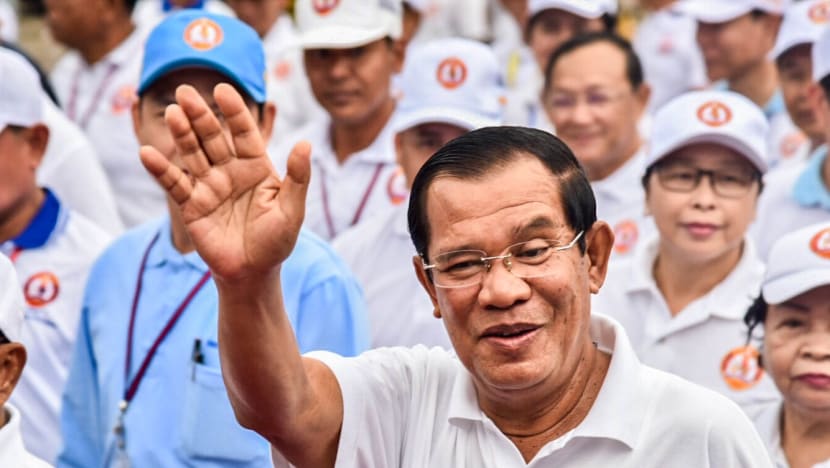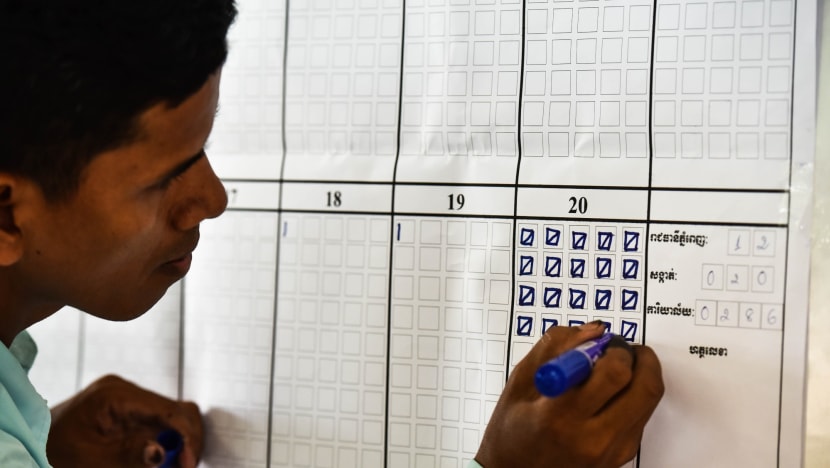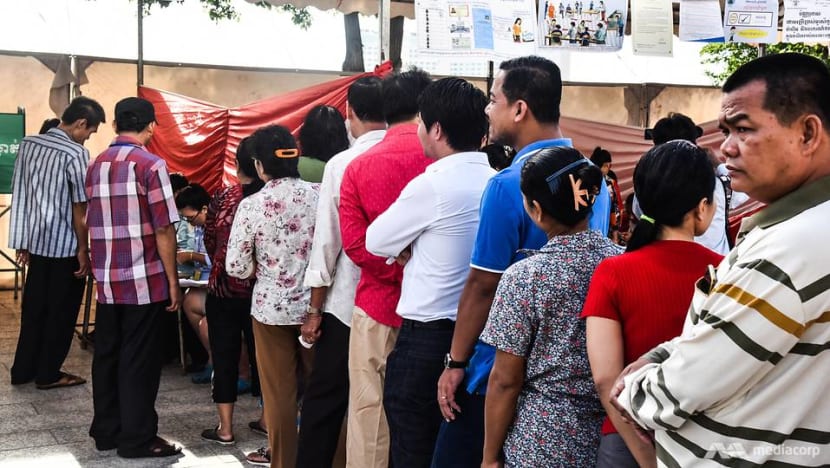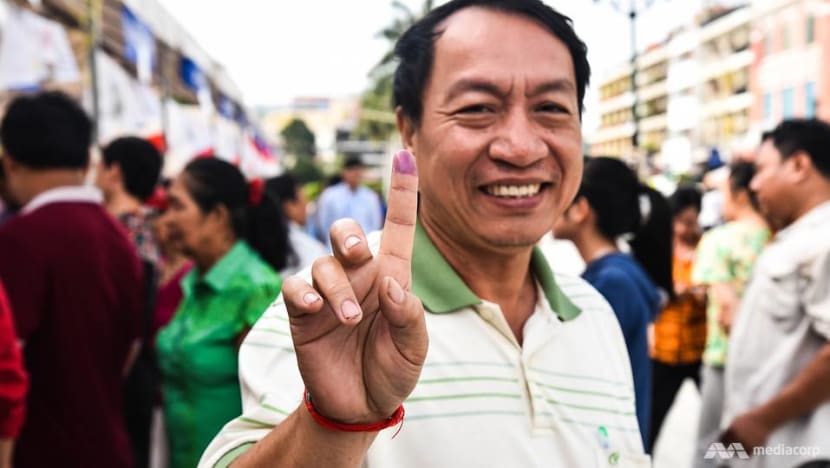Hun Sen's ruling party easily wins every province in Cambodian election; opposition say numbers 'fabricated'

Hun Sen has been in power in Cambodia since 1985. (Photo: Jack Board)
PHNOM PENH: Hun Sen’s ruling Cambodian People’s Party (CPP) was swept overwhelmingly back into power on Sunday (Jul 29) in an election that was calm on the surface, but turbulent in its conception.
In the absence of the main opposition party - the Cambodia National Rescue Party (CNRP), which was dissolved last year - the CPP enjoyed a processional day at the ballot boxes to preliminarily secure an estimated 80 per cent of the vote and at least 100 of the 125 seats in the National Assembly, according to party spokesman Sok Eysan.
“It is not less than 100 seats and it could be more than 100 seats," he said.
He said on Monday that the CPP "will take all seats across the country" in an interview at the party headquarters. "I can say it's a landslide victory," he added.
Sok Eysan said the forecast is an estimate based on initial results - final figures are due August 15.
The CPP easily won every province in the country, with smaller parties contesting unlikely to have any significant influence in the next term of parliament.
Voter turnout, a major talking point before and during the contest as a reflection of real CPP support in the midst of community intimidation and opposition calls for an election boycott, was an apparent non-factor in the final outcome announced by the National Election Commission (NEC).
READ: Censors and intimidation surround Cambodians as election voting opens
READ: Cambodia's Hun Sen has an important election backer: China
But the high number of invalid votes, particularly in urban areas, was suggestive of a silent protest against the ruling party.
The NEC declared the election a success, saying it showed to the international community that Cambodians know clearly about their democratic rights. “Cambodia should be proud,” said NEC chairman Sik Bun Hok.
“It showed the maturity of Cambodian people all over the country. They know how to use their rights and how to choose their leader,” he said.
More than 82 per cent of registered voters, or about 6.88 million people, cast their ballot, which was more than the heavily contested 2013 general election. It is an outcome that will boost the government’s claim of democratic legitimacy.
The CNRP had launched a “clean finger campaign” in reference to the indelible ink used on voters’ fingers and labelled the election “fake” and a “sham”. In the face of pressure and incentives for people to show up, that campaign appears not to have had an overly significant impact.
The 17 per cent of invalid votes in the capital Phnom Penh was clearly the second most popular option for those choosing not to re-elect the CPP. The provinces of Kandal, Kampong Cham and Takeo also witnessed high invalid vote counts of more than 10 per cent.

“It is what it is - a circus. I believe the official turnout figures are fabricated,” said Monovithya Kem, the CNRP’s deputy director of public relations. “But I am moved by pro-democracy voters, particularly CNRP supporters who have taken the risks to boycott.”
“It is not a fake election like outlaw rebels are saying from overseas," countered Sok Eysan.
International observers - from countries including China, Uzbekistan and Myanmar - said they saw no signs of pressure being applied to voters and that the process appeared to be “transparent”.
Participating voters in Phnom Penh though said they were generally comfortable with the situation and were bound by their obligation as citizens to have their say.
“We know this is our duty. We should do it. The atmosphere is good because it is the same as previous elections,” said civil servant Bou Chankolroath, 27.

Others like Ny, a tuk-tuk driver, observed from a distance but said he would not vote. He did not wish to give his full name out of fear of reprisal.
“I feel unhappy because there is only one party. It is not free and fair. No-one can compete and maybe the other parties cannot win even a single seat,” he said.
No official election monitoring teams were present from western nations and Japan pulled out its monitors on the eve of the vote citing fears about the political climate in the country.
“The presence of untrained, so-called election observers is deplorable,” said the Asian Network for Free Elections in a statement. “The 80,000 domestic observers authorised by the NEC show neither the autonomy nor the skills to conduct an independent, reliable assessment of the elections.”
There was little analysis from present observers about the wider prevailing conditions in the weeks and months leading up to the election. In that time, Cambodia has come under harsh criticism from the United Nations, European Union and United States for a crackdown on independent media, freedom of speech and civil rights groups.

Election funding was rescinded and more sanctions are being considered against the prime minister’s influential inner circle.
On Sunday, the Australian Broadcasting Corporation caught on camera the country’s information minister handing over cash to local journalists, following his vote.
It followed other investigations into claims of hidden wealth and corruption that threatened to further destabilise the election campaign, but with few legitimate alternative choices, there were no surprises for the regime that has been in power since 1985.
The final official results of the election are expected on Aug 15.
















